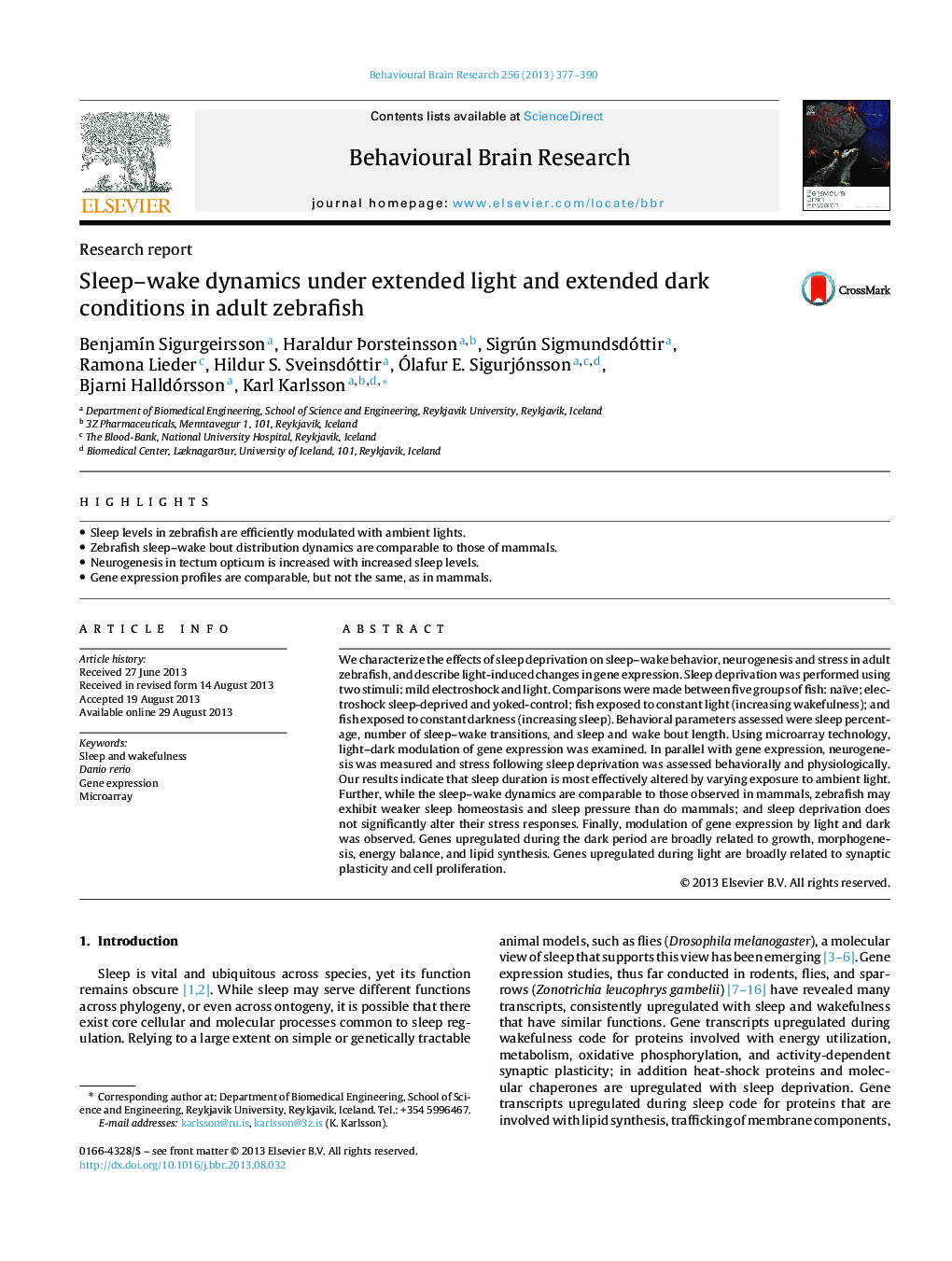| Article ID | Journal | Published Year | Pages | File Type |
|---|---|---|---|---|
| 6258823 | Behavioural Brain Research | 2013 | 14 Pages |
â¢Sleep levels in zebrafish are efficiently modulated with ambient lights.â¢Zebrafish sleep-wake bout distribution dynamics are comparable to those of mammals.â¢Neurogenesis in tectum opticum is increased with increased sleep levels.â¢Gene expression profiles are comparable, but not the same, as in mammals.
We characterize the effects of sleep deprivation on sleep-wake behavior, neurogenesis and stress in adult zebrafish, and describe light-induced changes in gene expression. Sleep deprivation was performed using two stimuli: mild electroshock and light. Comparisons were made between five groups of fish: naïve; electroshock sleep-deprived and yoked-control; fish exposed to constant light (increasing wakefulness); and fish exposed to constant darkness (increasing sleep). Behavioral parameters assessed were sleep percentage, number of sleep-wake transitions, and sleep and wake bout length. Using microarray technology, light-dark modulation of gene expression was examined. In parallel with gene expression, neurogenesis was measured and stress following sleep deprivation was assessed behaviorally and physiologically. Our results indicate that sleep duration is most effectively altered by varying exposure to ambient light. Further, while the sleep-wake dynamics are comparable to those observed in mammals, zebrafish may exhibit weaker sleep homeostasis and sleep pressure than do mammals; and sleep deprivation does not significantly alter their stress responses. Finally, modulation of gene expression by light and dark was observed. Genes upregulated during the dark period are broadly related to growth, morphogenesis, energy balance, and lipid synthesis. Genes upregulated during light are broadly related to synaptic plasticity and cell proliferation.
